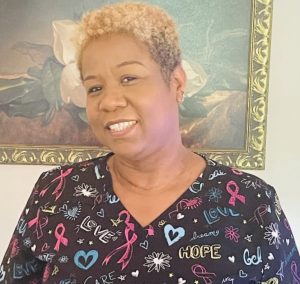Estate Planning at Any Age
It’s never too soon to think about Estate Planning. This is even a project you can take on as a family, because if you are over 18 years of age, own property, have assets, or are a parent or guardian, you need to have an estate plan. It’s also important to understand your parents’ plans as well so that you can all be prepared.
You may be considering the following when you and your loved ones make plans for financial, health, and residential future needs.
Health care proxy (medical power of attorney) – names the person you choose to make healthcare decisions for you if you become incapacitated.
Living Will – a legal document that describes your end-of-life medical care, including resuscitation, assisted breathing, or intubation.
Durable power of attorney – names someone who can make legal and financial decisions for a person who is physically or mentally incapacitated. For instance, they can pay bills for a person who is hospitalized or diagnosed with dementia.
Will – is a legal document that directs the distribution of property and assets at death. It can also address the care of minor children.
Long-term care plan – covers a number of possible scenarios. According to the National Institute on Aging, “Long-term care involves a variety of services designed to meet a person’s health or personal care needs during a short or long period of time. These services help people live as independently and safely as possible when they can no longer perform everyday activities on their own.”
Other documents may be necessary depending on your personal and financial position: beneficiary designations for 401(k)s and insurance plans, guardianships for minor children or adult children with developmental disabilities.
With all of these documents and plans to consider, it is wise to begin making decisions as soon as possible so that you and your family are not rushed should a loved one suffer an accident, medical emergency, or begin a decline in health or mental capacity.
Long-term care insurance is another option and covers the expenses of care in the home, hospital, nursing home, or assisted living facility. Medicare only covers the cost of medical care, not custodial care such as assistance that may be needed for getting dressed, bathing, and eating.
Depending on your plan, Medicare does cover a range of home health services and hospice. “Medicare-certified hospice care is usually given in your home or other facility where you live, like a nursing home.” Check out Medicare.gov: the official U.S. government site for Medicare | Medicare for specifics.
Nerdwallet explains it like this: “Considering long-term care costs is an important part of any long-range financial plan, especially in your 50s and beyond. Waiting until you need care to buy coverage isn’t an option. You won’t qualify for long-term care insurance if you already have a debilitating condition. Most people with long-term care insurance buy it in their mid-50s to mid-60s.”
Seek the help of a professional. An Estate Attorney will draft the legal documents such as the will, power of attorney, and health care proxy. It is important to find an attorney who is licensed in your state of residence as estate law varies from state to state and, in some cases, county to county.
We’d love to meet you, find out more about your family’s needs, and help you prepare for the future. Call us today at 410-826-6100 for a free in-home assessment by one of Avila’s Registered Nurses. And stay tuned for Avila’s next blog that will include local resources in Maryland for Estate Planning!
Kerney Hopkins is Avila’s Caregiver of the Month for March, 2024!
Kudos to Kerney Hopkins for being selected as Avila’s Caregiver of the Month for March 2024! “She provides kind, humble and respectful care,” shares Leslie Johnston, Director of Healthcare Services at Brightwood Senior Living. Kerney even gives extra support beyond her shifts- including calling her clients to remind them to take their medications, and visiting them in the…
Read More...Toute Sweet- Avila Caregiver Molly Hartsfield’s Tasty Treats!
Molly Hartsfield brings all the sweet love and care to her Avila clients just like she does when baking her delicious treats! From festively decorated chocolate-covered fruit, to scrumptious “pop-cakes” and dipped pretzels, Molly brings joy to all those with whom she shares her treats. It’s no wonder her clients adore her! “I’ve done things…
Read More...How Seniors Benefit from Interaction with Children and Young Adults
When seniors interact and make personal connections with members of younger generations, such as children and teenagers, the benefits for all parties involved can be boundless. Here, the home care providers at Avila Home Care discuss how seniors can benefit from interacting with children and young adults to increase their livelihood and even experience health…
Read More...


